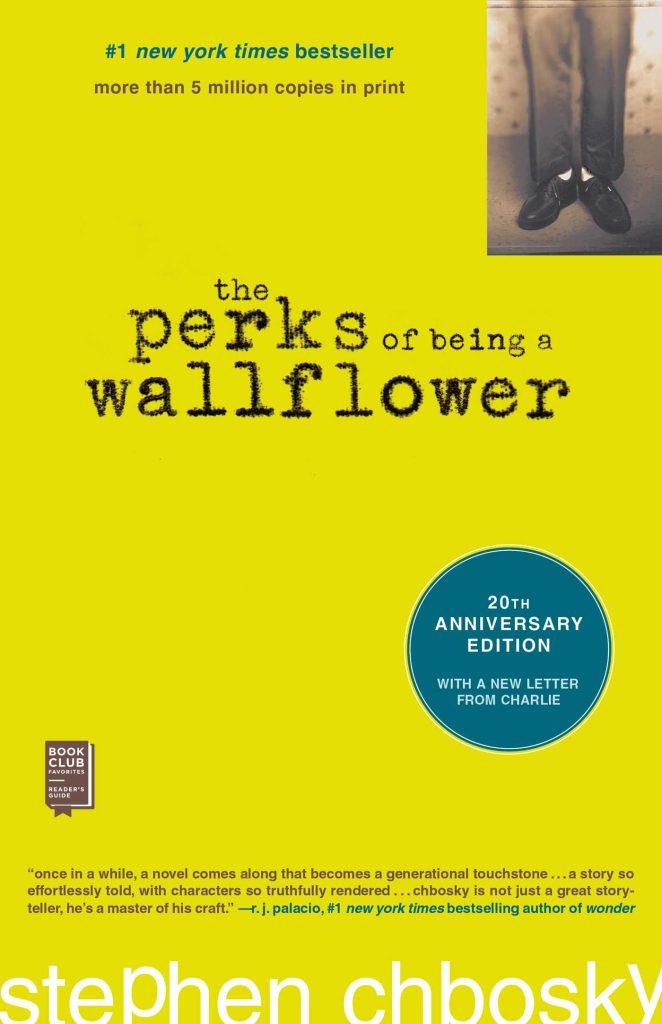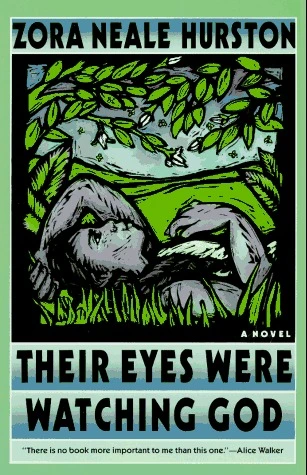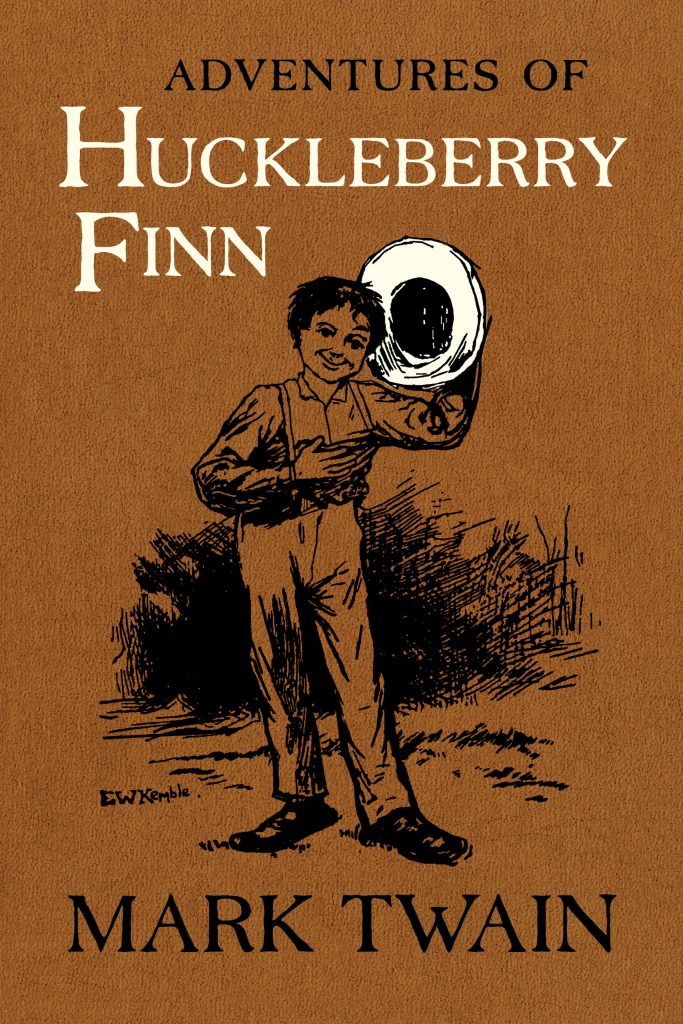Staff Picks: Our favorite banned books

My favorite banned book is The Perks of Being a Wallflower by Stephen Chbosky. In high school, a friend read the book and recommended it to me knowing I would like it. The book takes a very honest, candid look at the many issues young people encounter, from troubled friend group dynamics, first love and heartbreak to homophobia, abortion, and deep trauma from suicide and familial abuse, all things that people have decided to ban this book from schools and libraries for containing. To this day, over 20 years after its initial release, it is one of the top banned books in the United States almost yearly. I related to Charlie’s outside-looking-in perspective on life and the loneliness it can bring, and hope that others who read the book can relate to him too and maybe feel some solidarity in the challenges they go through every day.
-Maggie Harding, Collections Librarian

On the topic of Banned Books, my favorite is the Harry Potter series by J. K. Rowling. They were banned mostly for religious reasons, that they focused too much on violence and evil practices, and were anti-family. Fansided reported Tennessee banned the series because some thought the spells were real. Others cited Biblical references against witchcraft. Content Blvd. reported the books were banned in schools in the United States in Georgia and Connecticut as well as Tennessee.
Kate Pastoor investigated the Harry Potter series in schools, and in Home, The Archive, 2001-2, there is more pro than con in her report. Cynthia Bates cited Pastoor’s ideas in favor of such books that have the “power of imaginative literature to transform young people’s lives.” This to me does not seem to be a negative statement.
The series provides a platform for imaginative intellectual freedom, for showing how a female character can be intelligent and creative although perhaps pedantic, and it shows how families can be more than just by blood. Harry, an orphan taken in not by choice by his aunt, is ill-treated by his aunt, uncle, and cousin. Still, he makes his family from the Hogwarts students and staff. Although the series deals with good versus evil, it shows that good prevails, that love and loyalty are extremely important in a person’s life, and that family upbringing and circumstances do not have to limit one’s character development. Harry is a good kid!
-Elsie M. George, Children’s Librarian

Zora Neale Hurston’s novel, Their Eyes Were Watching God, was first published in 1937, and it is my favorite book of all time. It tells the life story of Janie Crawford, a light-skinned Black woman who overcomes much adversity on her journey to live for her own sake, instead of simply pleasing others.
The story takes place in rural Florida and addresses issues such as civil rights, arranged marriage, domestic abuse, groupthink, and social psychology. Hurston was way ahead of her time. A trained anthropologist, Zora was a key figure in the Harlem Renaissance; her documentation of rural Black life and Haitian culture has served as a foundation for the study of Black Cultural Studies in the Americas. Her works as a writer were both loved and critiqued by Black readers. She invented and coined the concept of autoethnography, or a type of ethnographic research in which a researcher compares and contrasts personal experiences to wider cultural, political, and social meanings and understandings.
In 1997, the book was banned in some Virginia schools because parents objected to some of the work’s language, sexual explicitness, and Janie’s relationship with the much younger Tea Cake. Interestingly, those parents did not have an issue with Janie’s arranged marriage (as a minor) to an old man, nor the twenty years of domestic abuse she suffered at the hands of her second husband.
I first read this novel in AP English in high school and quickly devoured everything else I could find by Hurston. I found Janie’s ability to garner self-reliance and endurance to be incredibly motivating. I also fell in love with the way Hurston used language: she strove to be as authentic as possible to the culture and dialect of the time period in which the novel takes place. I could also deeply identify with Janie’s relationship with her grandmother and the absence of a mother– something I hadn’t seen represented in anything else I’d read before then.
Twenty years later, this work continues to motivate me personally, and professionally. An exchange between Janie and her grandma embodies my professional philosophy of practice:
” . . . we don’t know nothin’ but what we see.”-Nanny Crawford to Janie. (Hurston, 1991, pp 19).
Hurston spent the last years of her life serving as the librarian of the Pan-Am World Airways Technical Library but was fired for being “too educated” for her job. She died, impoverished, in 1960 and had an unmarked grave. In 1973, Novelist Alice Walker and Hurston scholar Charlotte D. Hunt found her grave and honored the late Hurston with a marker. Much of her life’s work can be accessed through the Library of Congress: https://guides.loc.gov/zora-neale-hurston/searching-collections
-Heather D. Hutto, Library Director

I have to say, I am a reader of many genres. I read fiction, non-fiction, biographies, autobiographies and other media. I enjoy the freedom of choice; reading whatever interests me. I love the public library for the fact that I have choices.
From a parent perspective, I always paid attention to what my children were reading and what they were capable of comprehending. I also encouraged expanding their minds and taking the proper time to talk about all the books and media they were absorbing through the years.
The freedom to expand our minds should not be banned. Books give us the freedom to travel to real places and fantasy places. The wonder of discovering new creatures and adventures through fiction to expand our imagination. I like having the opportunity to learn of different cultures, lands, religions, peoples, societies, and much more; for the knowledge and understanding to be gained.
As a child I read Huckleberry Finn many times and Tom Sawyer too. I would hate for my children not to have had the opportunity to read these too. Popular and familiar series such as: Star Wars series, Star Trek series, Lord of the Rings series by J. R. R. Tolkien, Harry Potter series by J. K. Rowling, Ender saga by Orson Scott Card, Artemis Fowl series by Eoin Colfer, and many, many more have been contested or banned. Beatrix Potter, A. A. Milne, Lewis Carroll, L. Frank Baum, and Dr. Seuss are among many children’s authors whose works have been contested and/or banned. These are just a handful that my family has enjoyed. It would have been a crime to have deprived them of the joy of these books.
The Expanse series by James S. A. Corey is my current favorite book series.
-Kimberly Balachowksi, Youth Librarian